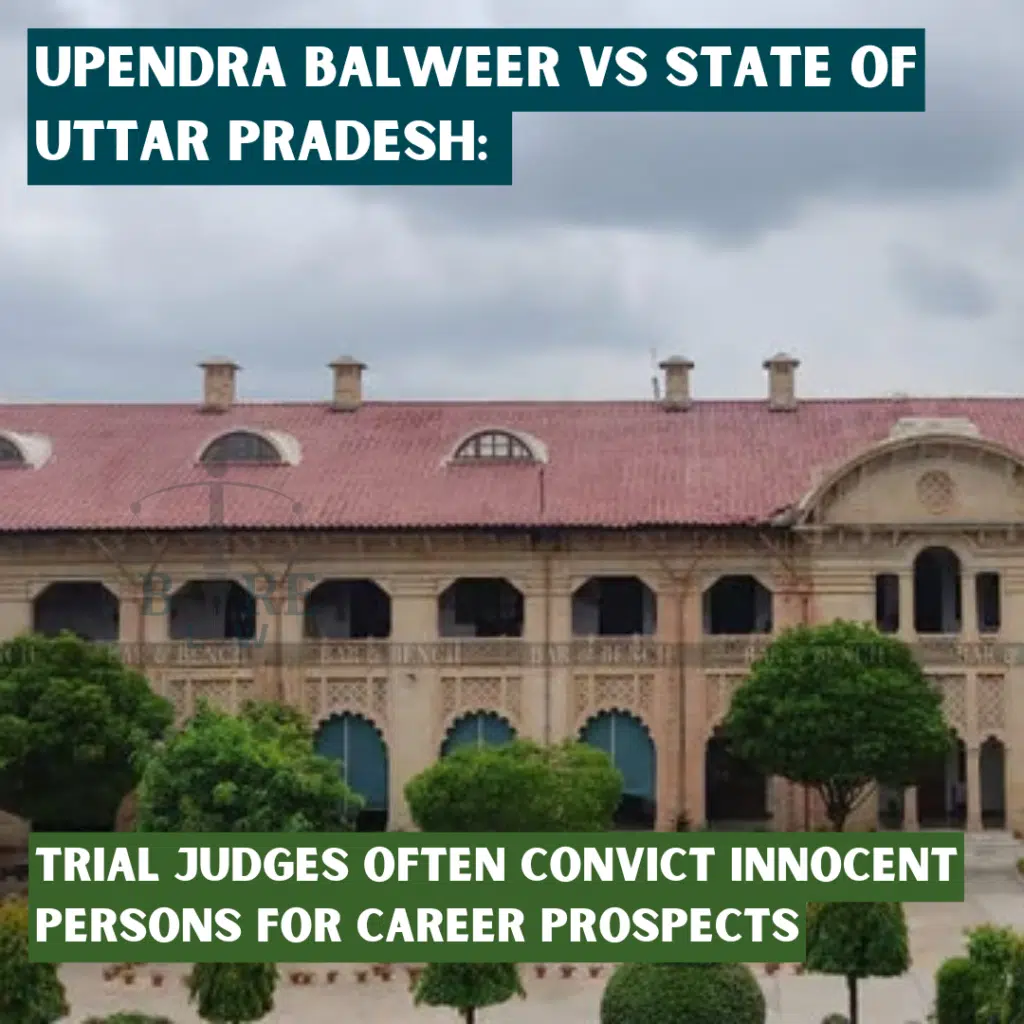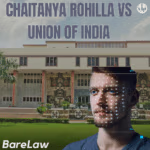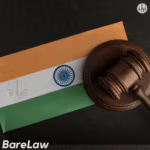The Allahabad High Court, in Upendra @ Balweer v. State of Uttar Pradesh, criticized the lack of legal provisions for compensating wrongfully prosecuted individuals, especially in cases where trial courts convict innocents under pressure to preserve reputations. Highlighting a man’s 13-year imprisonment despite insufficient evidence, the court urged the government to adopt a compensation law to aid the wrongfully accused in reintegrating into society.
Noting that trial court judges occasionally convict innocent people merely to preserve their reputation or safeguard their career prospects, the Allahabad High Court recently advocated for the creation of a statute to compensate those who are wrongfully prosecuted in criminal cases [Upendra @ Balweer v. State of Uttar Pradesh].
Upendra Balweer vs State of Uttar Pradesh: Trial judges often convict innocent persons for career prospects

The comment was made by Justices Siddharth and Syed Qamar Hasan Rizvi at the acquittal of a man who had previously been charged with killing his wife in 2009. The man should have been acquitted, but the court pointed out that he had been imprisoned for about 13 years before being freed on bail.
It stated that he ought to receive hefty compensation but pointed out that no appropriate legal framework is in place now.
“Since trial courts frequently convict accused in cases of heinous offenses out of fear of higher courts, even in cases where acquittal is obvious, the government should have accepted the 277th Report of the Law Commission, which called for a law to address wrongful prosecution, including by setting up special courts to address such claims.” The Court continued, observing, “They fear the wrath of the higher courts in such cases, and such judgment and order of conviction are passed only to save their personal reputation and (career) prospects.”
The Court further stated in its October 25 verdict that violations of Articles 14 (right to equality) and 21 (life and liberty) of the Constitution for those who have been unfairly prosecuted continue unabated because the government has done nothing.
“Even in the much hyped Bhartiya Nagrik Suraksha Sanhita, 2023 there is nothing in consonance with Articles 14 and 21 of the Constitution of India for such unfortunate ones,” the Supreme Court said.
The Court continued by stating that even in cases when falsely convicted individuals are eventually found not guilty, they nevertheless struggle to reintegrate into society and their families. As a result, the Court urged the State to make amends.
“The State can provide some pecuniary compensation to such accused which may provide them some solace and they would not be seen as a burden on their family after being acquitted of the unfounded charges levelled against them,” the judge stated.
Read More
Trial judges frequently convict innocent people to prevent the High Court from taking action: High Court of Allahabad
In 2010, the Court made these statements while granting an appeal filed by a man who had previously been convicted by a trial court of killing his wife in 2009.
At first, the guy was charged with dowry demands, cruelty to his wife, dowry death, and causing the death of an unborn child in violation of Section 316 of the Indian Penal Code (IPC). Later, the trial court changed the charges and found him guilty of both Section 316 and Section 302 (murder) of the IPC.
However, the High Court concluded that the prosecution had not even shown evidence to support the claims of cruelty or dowry death. Based on the discovery of a two-month-old fetus within the deceased wife’s womb, the trial court nevertheless added a murder charge against the accused at the time of the verdict.
Interestingly, the accused was not even permitted to defend himself against the recently added murder accusation, according to the High Court.
“There is no question that a charge can be changed at any point during the trial, but to protect the accused’s interests, the learned trial court should provide him with a fair and appropriate chance to defend himself against the changed charge. The High Court said that he must be given the chance to have a fair trial.
Although the appellant was ultimately found not guilty, the court did not mandate any compensation because no appropriate legislation supported it.
“We have no recourse since there is no statutory structure. Our justice delivery system makes a token effort to make restitution for the hundreds of innocent people who are unfairly prosecuted but then acquitted after years. The Court noted that although the public law remedy did not establish a standard formula for the growth of this area of compensation jurisdiction, it did result in a few isolated adjudications through writ jurisdiction.
The accused-appellant was represented by advocate Amar Singh Kashyap.
Manju Thakur, an additional government advocate, represented the state of Uttar Pradesh.



